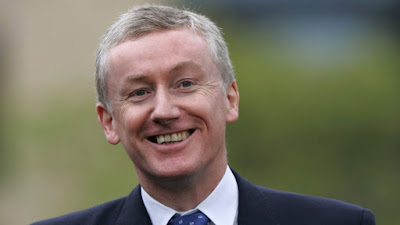Fred Goodwin Court Case Update: A Mirage of an Opportunity
Today’s short post reacts to the news that the majority of
shareholders pursuing legal action against the former CEO of RBS, Fred Goodwin,
as well as the Bank itself for representing a false picture of their health
before a £12 billion cash call in 2008, have apparently decided to accept a
settlement offer from RBS at 82p per share, 10p less than they had hoped. For
this post, the details of why this is happening are of importance, as is the
fact that the country will presumably miss out on a chance to witness a group
of individuals who partook in the pilfering of society be examined in a court
of Law.
We have only recently discussed this case here
in Financial Regulation Matters, so
there is little need to go into any great detail on the case itself. Essentially,
in 2008 RBS had painted a picture of its health before a £12 billion cash-call
that was simply not true, with those who had met the call losing serious
amounts of money shortly afterwards. A group of 9,000 investors and
shareholders had initiated legal action against the former CEO Fred Goodwin and
a small number of Directors who sat on the Board at the time (the case also
cites the Bank itself), but last week, just
hours before the case was due to be heard in the High Court in London, RBS
offered the claimants £200 million in compensation, representing 82p per share.
As a result of this development, the Judge hearing the case, Judge Robert
Hildyard, had adjourned the case until the 7th of June, stating that
‘we must have certainty
one way or the other. The court must know whether the matter is to proceed or
not’. However, news today suggests that the court will in fact know whether
the matter is to proceed or not, with the RBS Shareholder Action Group advising
investors involved in the case that ‘we
have decided to accept the offer of 82p per share on behalf of our membership’,
with 70% of claimants needing to accept the compensation offer to bring the
case to a premature close. The Action Group suggest that it is in the best
interest of the claimants to settle now, because the case against the
individual directors is ‘mixed’, whilst it is also very likely that the Bank
will appeal the decision and extend the legal process much further. Yet, the
clearest indicator that Goodwin and his associates will not face the court came
with the news that Trevor Hemmings, the businessman funding the claim, will be
accepting the offer and, as such, withdrawing his funding. Ultimately, ‘that
means that there is currently no available funding to fund the legal and other
costs to take the matter to trail’; it seems the system has worked to a
tee.
Yes it is disappointing to hear that Fred Goodwin, the man
at the helm of a bank that continues to drain the resources of the British
Public even to this day, will avoid being seriously
questioned regarding his actions. For the claimants who are not as well represented
as Trevor Hemmings, the reality is that ‘despite
the likely £200 million settlement, however, lawyers, funders and other
advisers to the action group will take between 40 and 45% of the proceeds,
meaning some investors will be left feeling short-changed’; yet, Goodwin is
free to spend his millions. However, let us take a different viewpoint: this is
not a failure of the system, but a victory. The financial elite have, yet
again, been able to manoeuvre themselves so that they are best placed to
pilfer, whilst the system makes it nigh on impossible to prosecute them –
unless there is overwhelming evidence
of fraud i.e. Bernie Madoff, then there is very little chance of conviction.
Rather, the public will bear the costs of these pilfering endeavours, large
investors will be able to claw some of their investment back, and the smaller ‘retail’
investors will be left to feed off crumbs. So, Fred Goodwin did not luckily ‘escape’
being publically examined, simply because this was arguably never an option in
the first place. In fact, this case represents another component of the amnesia
that is slowly taking hold – soon there will be no one left in the public eye
associated with the financial crisis, which will be the foundation for forgetting
it ever happened.





Comments
Post a Comment